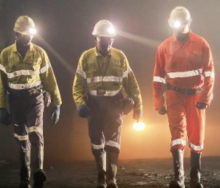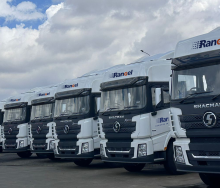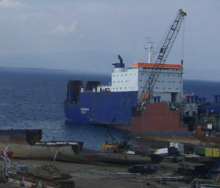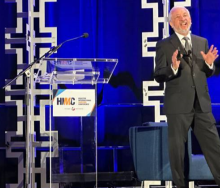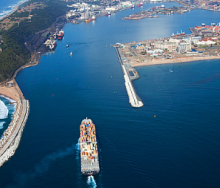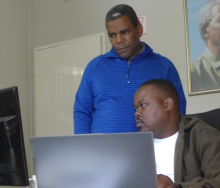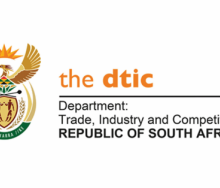The review period for slots awarded to harbour carriers responsible for landside container movement at the Port of Durban has been doubled from two daily to four, as Transnet continues to seek solutions for decongesting Pier 2.
Previously, slots were reviewed every 12 hours, with the first review period held at 6am.
But a meeting with private-sector stakeholders yesterday underscored that a necessary change had to be made, after which Transnet Port Terminals (TPT) decided to ramp up slot-review periods to four a day, said Earle Peters, chief executive of Durban Terminals.
He said implementing reviews every six hours as of 22 August, was a quick win for public-private participation and emerged out of the daily 10am catch-up meetings that were part of a two-week trial period trying out various initiatives to speed up box movement.
“We meet every morning to reassess how the previous 24 hours have gone, what we missed, and what we need to examine.”
Almost one week into the trial phase, which came into effect last Friday, Peters said it had become apparent early on that as slots were awarded and not used, they needed to be reassigned as soon as possible by duly informing industry.
“We’re tweaking the system as we move along,” Peters said.
He added that, at this stage, Transnet’s initiatives to resolve long-standing frustrations experienced by transporters at Durban Container Terminal appeared to be bearing fruit and had private-sector support.
“Harbour carriers have agreed to partner with us to try new things. Although it’s too early to assess the effectiveness of booking system changes, we will take stock on Friday and figure out how to approach week two of the trial phase.”
But an industry source said transporters did not necessarily share Peters’ optimism.
The source said it should be remembered that the changes forming part of the trial phase, such as exempting group import release (GIR) clients of 50 or more boxes from booking slots, and thereby making more slots available for smaller carriers, was a Transnet idea that non-GIR transporters were not yet benefiting from.
"I think it's going to take some time before we see real change," the source said.
Peters confirmed that the unavailability of slots for smaller carriers was a nagging problem but essentially one that carriers themselves should sort out.
“What we are finding is that those with one or two bookings are still battling to align with incoming containers and the delivery expectations of their clients. They are trying to figure out when to collect and deliver within business hours while we are running 24/7 operations.”
He said larger fleet operations did not work like that and were benefiting from the GIR initiative that had been rolled out when the trial phase started.
“Large transport companies have depots that, like us, can run outside ordinary business hours.”
The source said it was amusing that TPT would consider it an achievement to meet with industry on a daily business, as such engagements should be par for the course and not part of some special trial phase.
The source said the industry had real reservations about the trial phase as problems persisted.
“The real issue is the system that Transnet is using for imports and exports. Both require different processes, and I cannot see how the current situation is viable, as inflows and outflows have different back-of-port requirements.”
The source said that although the GIR component of the trial phase was commendable, it was a volume-focused strategy for large concerns – not helpful at this stage to harbour carriers from the SMME sector.

